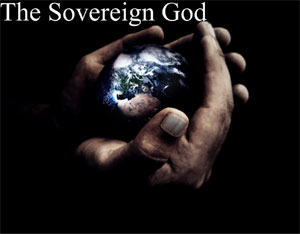Hebrews 6:1-3
New Bible studies and devotionals sent to your email. The first one includes a free gift!
A serial killer and a “good man” who told a little white lie both suffer for all of eternity in Hell. Our natural human thinking tells us that the serial killer deserves a greater punishment for his crime than the “good man.” Yet, they both suffer the same fate. Why?
Is an eternal Hell really a fair punishment for ALL sins? Isn’t the sin of murder worse than the sin of telling a lie? Is God really being fair?
The answer is YES! Hell IS a fitting punishment for sin. Our issue is that we don’t really understand that sin is sin. There are no degree to sin. One sin is as unrighteous as the next. It’s only our unrighteous human desire to minimize our guilt that causes us to place levels on sin.
Before we really get into the subject we need to establish (yet again) that God is the one who owns the universe. Therefore, God is the one who gets to make the rules, and set the consequences for breaking them.

The denial of this is a common theme that runs through every “moral argument” against God. The argument of unfair punishment is no exception.
So, let me quote from elsewhere on this site: “God alone decides what is and wrong. You don’t like that? Maybe you would like to decide? Well, do you own the universe? No? Then get your proud little hands off of what isn’t yours!
“The point is that you DON’T get to decide. You only get to know what was already decided for you. God owns you, like it or not. You DO, however, get to decide if you want to DO right or wrong.”
The point is that if God says murder is a sin it doesn’t make telling a lie less sinful. God only set ONE result for sin. That result is death. If He makes the rules, then who are we to say what is and is not fair? It isn’t our place to choose. It isn’t OUR universe!
The Bible says “our righteousness is as filthy rags.” How filthy does a rag have to be before you throw it out? Let me rephrase that. Would you use a dirty rag to clean your house? I suppose that would depend, right? How dirty is the rag compared to the house?
Obviously, you wouldn’t use a rag with more dirt in it than the item you are trying to clean. You would just end up spreading the dirt from the rag onto the clean surface.

Now, how clean would your rag need to be if you were to use it on something that was already spotless? The rag would also have to be spotless.
God is Holy and Heaven is spotless. No unrighteousness enters there. So one sin is a dark spot on your otherwise perfectly clean rag. If you wouldn’t use a dirty rag on your clean house, why should God let a dirty rag in His?
All sin is unrighteousness. Some rags may be dirtier than others, but NONE are clean enough to stand before God. All dirty rags we may have are thrown away, because they are worthless. They all have the same fate, no matter their “degree” of filth. This is the same way God deals with us.
One sin, no matter how minor WE think it is compared to other rags, is STILL too filthy to enter Heaven. We may compare rags to rags, but God is comparing rags to Heaven!
If you don’t understand my metaphor I will make it clear. NO sinner can enter Heaven because they are not worthy. All sinners share the same fate because God isn’t comparing them to each other, He is comparing them to His standard of Holiness.
At this point you should be thinking “fair enough.” BUT why does Hell have to be eternal?
Another quote from a different page on this site: “Adam took a bite of the fruit that God said not to eat. What’s the big deal? Why should Adam be punished for all of eternity? That may be what someone looking at the single event may think.
“But, what were the effects of that sin? Men throughout history have murdered, lied, stole, and done all kinds of things to one another. Have you ever seen those videos showing how one good act can have an effect on everyone around you? It works in reverse too.
“Just as being kind to one person makes it more likely that they will be kind to someone else, it also means being cruel to one person can make them cruel to another.
“Can you see the chain reaction of sin? My sin causes you to sin which causes another and so on. So when someone is burning in hell it may be because of my sin. The effect of sin is perpetual. It never ends. If I ate that fruit which caused someone else to be in hell then shouldn’t my punishment be perpetual as well?”
Sin has eternal consequences. We may only see taking a bite off an apple as one event, but God see’s the eternal effects.
So yes, eternal punishment IS fair for a sin with ETERNAL consequences, and all sin has eternal consequence.
You may be asking yourself why God doesn’t just “wash” those metaphorical rags that I spoke of above. I hope you are! Because this is the entire point of the gospel!
God DOES wash filthy rags such as ourselves! But we have to be willing to let Him! All we have to do is accept what He did for us and turn to Him!
But here is the problem. Too many of us don’t want to turn to God. We don’t want to be made clean. Either we think that we already are (because we compare ourselves to others instead of God) or we just don’t want to stop living our own way.
So many people blame God for sending people to Hell. But should we really blame God for the choices that those PEOPLE made AGAINST His wishes?
This is what it all comes down to. It’s your choice to submit to God or to deny Him. So any result of your choice is on you. Whatever the result is, it will be fair.
July 8, 2017 at 4:59 pm | | 1 comment
It reminds me of a poem I wrote once, of a caterpillar, that was crawling on the ground looking for food, and a bright light appeared and he was drawn to it, and he felt his appearance changed into something beautiful, that was out of this world. He was sad to look at all the others that didn’t believe still crawling on the ground to make ends meet. He was sad for the ones that didn’t believe him. But he was taken up to a higher peaceful beautiful surroundings that he was in awe. Its like people on earth. Grace is simple and free, but man can’t see and are still crawling around in the dust. Where the ones who trust not in them selves but their maker make it to the top, where they are adored and loved like no other.